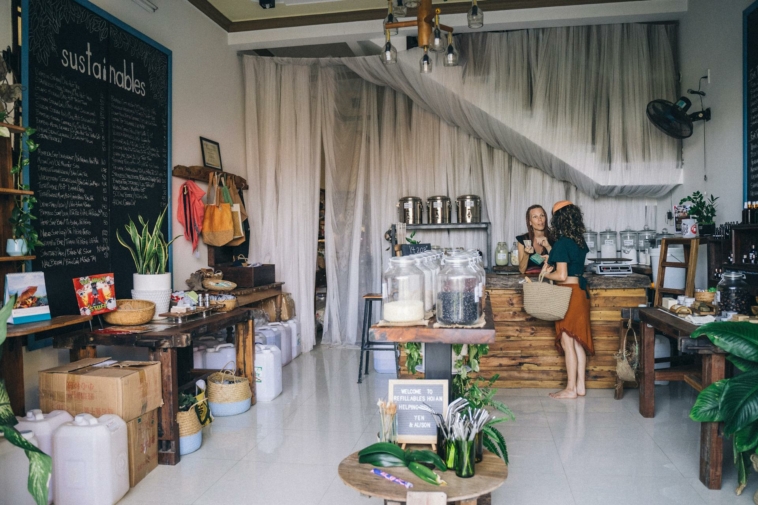Our environment is facing serious problems. We can no longer afford not to think about sustainability. Although big companies and governments have big roles to fill, we can’t forget about small businesses. They’re the backbone of our economies. They create jobs, drive innovation, and support community growth. With their personal touch and close-knit relationships, they are in a great position to inspire real change.
Yes, it’s the charming coffee shops and family-run stores we all love so much that have the potential to lead the green revolution. Intrigued? Let’s get into it!
Challenges Our Planet Faces
Our world is dealing with big problems with the climate. We’re seeing glaciers shrink, summers get hotter, and the seasons mix up. These are just some ways we notice climate change.
Deforestation and pollution are also big problems. Trees are what help the earth breathe. When they’re cut down, it’s the local flora and fauna that often pay the price. Pollution dirties our air, contaminates our water, and hurts our soil. People around the globe feel these changes. Farmers struggle with unpredictable weather, and people living on coasts face higher seas creeping into their homes.
The Role of Small Businesses
Running a small business can be hard; it’s easy to focus only on surviving. However, it’s important to tackle big issues too. Small businesses don’t have lots of money like big companies, which makes it tough to make big changes. But here’s their secret weapon: they can change directions quickly.
Because they’re connected to their local areas, small businesses know what their communities need. This makes it easier for them to come up with practical, sustainable solutions. For example, small farms that shift to green practices can show others how it’s done.
Moreover, starting a business with a focus on being green from day one is simpler when you’re small. Big companies find it hard to change, but small businesses can start focusing on the environment right away. They’re more creative and closer to their communities. They’re in a better position to switch to greener ways quickly and reap benefits like lower costs by saving energy and cutting waste. This approach appeals to eco-conscious customers today.
Being seen as an eco-conscious option gives you a competitive advantage and draws in clients and partners who share your vision. In the end, going green shows that your business is innovative, helping both the environment and your bottom line.
Practical Steps for Small Businesses to Go Green
You can reduce waste by setting up easy ways to recycle and encouraging your team to use items that can be used again. Consider hosting regular workshops on sustainable practices to inspire commitment within your team.
One effective way to cut down on energy consumption is by replacing old light bulbs with energy-efficient LEDs, as well as selecting appliances that use less power. Additionally, consider investing in smart thermostats and energy-monitoring systems to identify further opportunities for savings.
Start working with suppliers who’ve been working with sustainable materials for years; they’re out there, and they can help you find tailored solutions for your business. For instance, businesses in the food industry can explore biodegradable insulated packaging for perishable goods, while clothing businesses can choose organic, ethically sourced fabrics.
Make sure to focus on saving water too. Fix any leaks quickly and install faucets that use less water. You could even use a rainwater system for watering plants. Encourage your staff to carpool or use public transport by offering perks. If possible, add electric or hybrid cars to your company’s vehicles.
Going digital is another way to be eco-friendly. Use electronic billing, share files online, and sign documents digitally to use less paper. If you can’t avoid printing, use recycled paper. If you’re just printing for internal use, you can print on the back of old documents.
Overcoming Barriers to Sustainability
Going green can feel overwhelming for smaller businesses. The upfront cost of switching to things like energy-saving equipment can scare some owners off. But it’s best to think of that as a long-term move that you stop and start, with small changes snowballing to achieve a larger goal.
Another challenge can be getting everyone on board. Employees might resist change. Sell them on your vision before making any big changes. You want engaged employees to feel like they’re part of a mission, not just following orders.
There’s a lot of things you can do. Take your team out for an outing. Organize a workshop to educate them about why it makes sense for everyone to focus on sustainability. Maybe invite a guest speaker. Whatever works to get everyone fired up and ready to help.
Wrapping Up
Small businesses are vital players in building a sustainable world. Their creativity and adaptability position them as frontrunners in environmental initiatives. By going green, they not only contribute positively to the environment but also drive their own advancement. It’s high time for small firms to steer the green movement.



